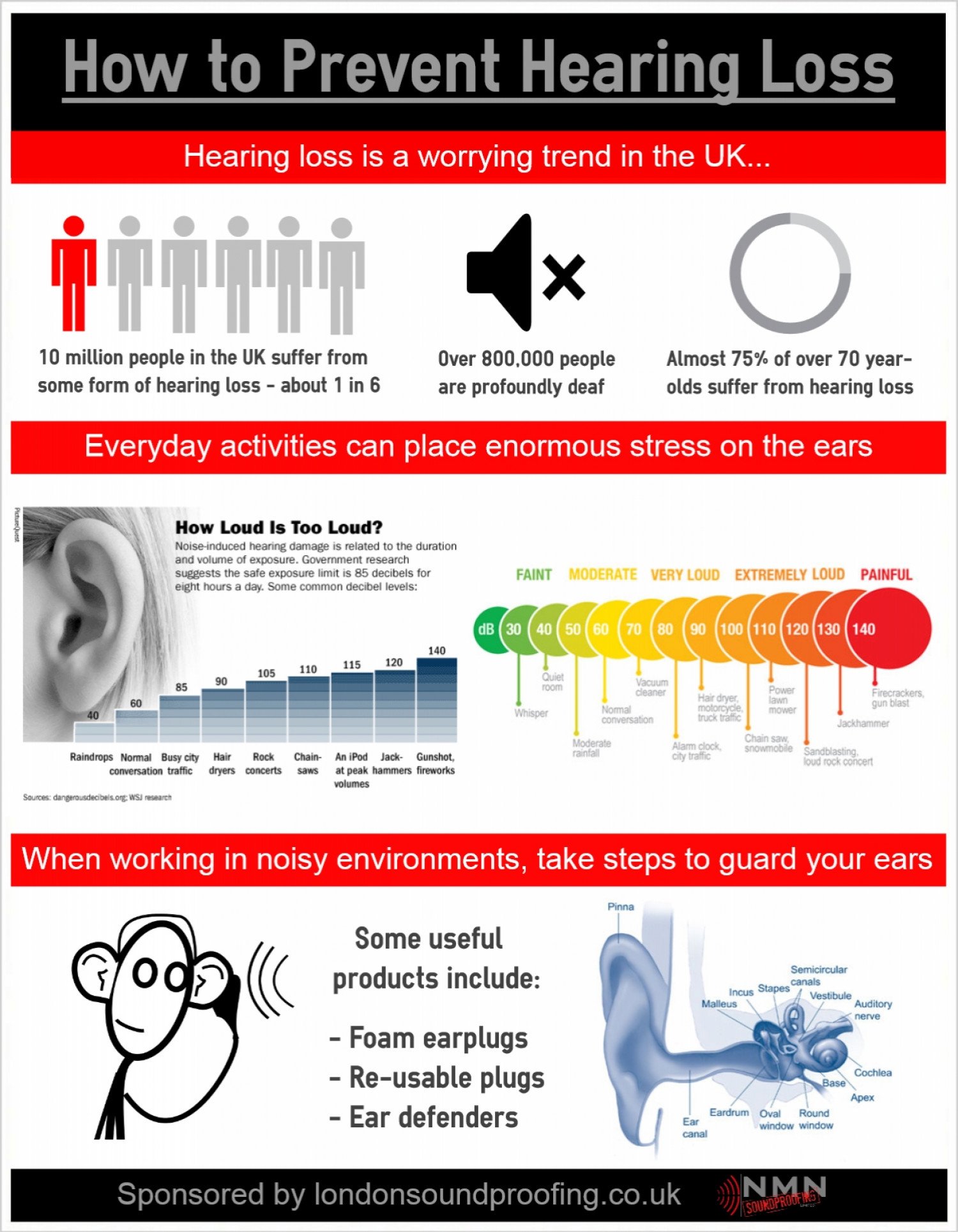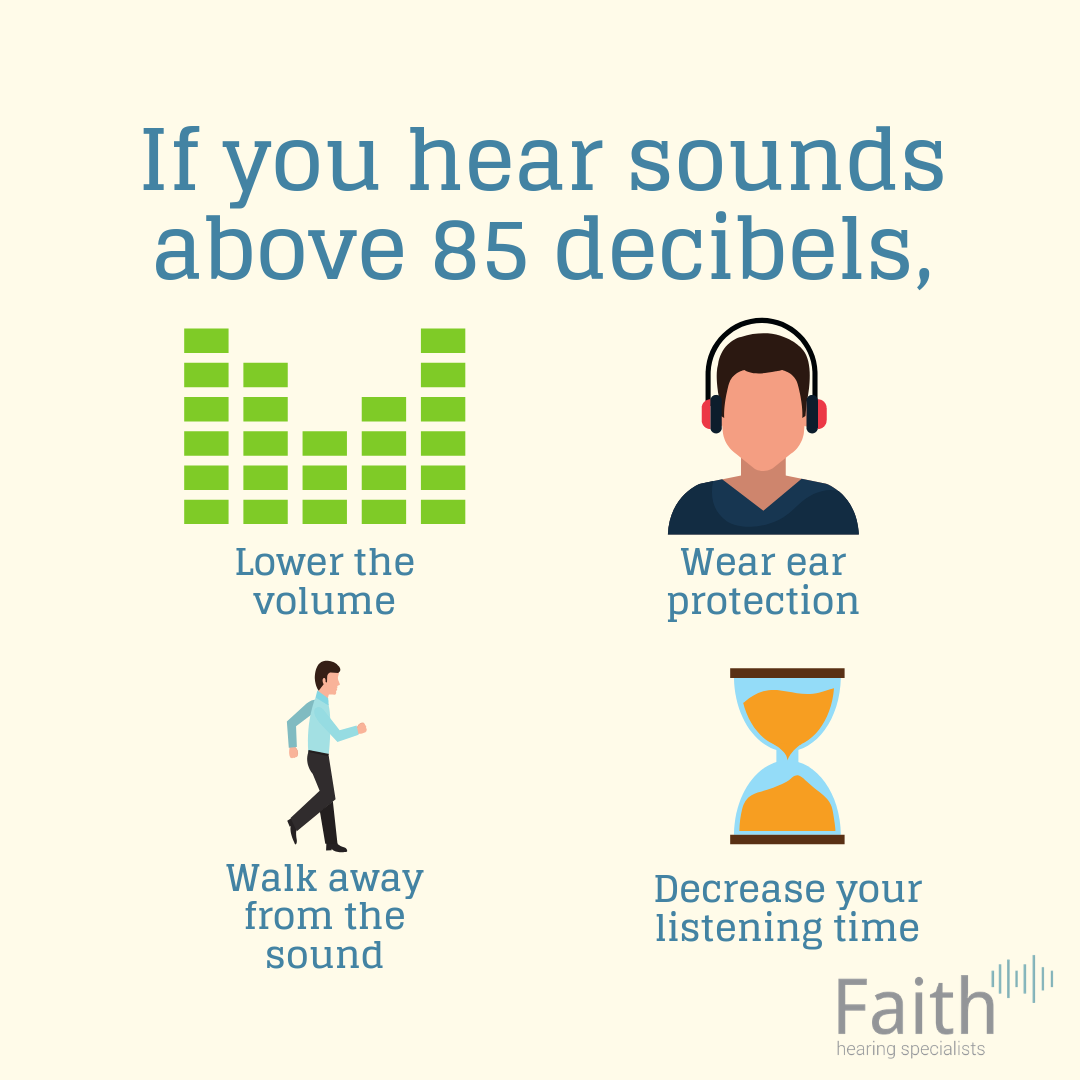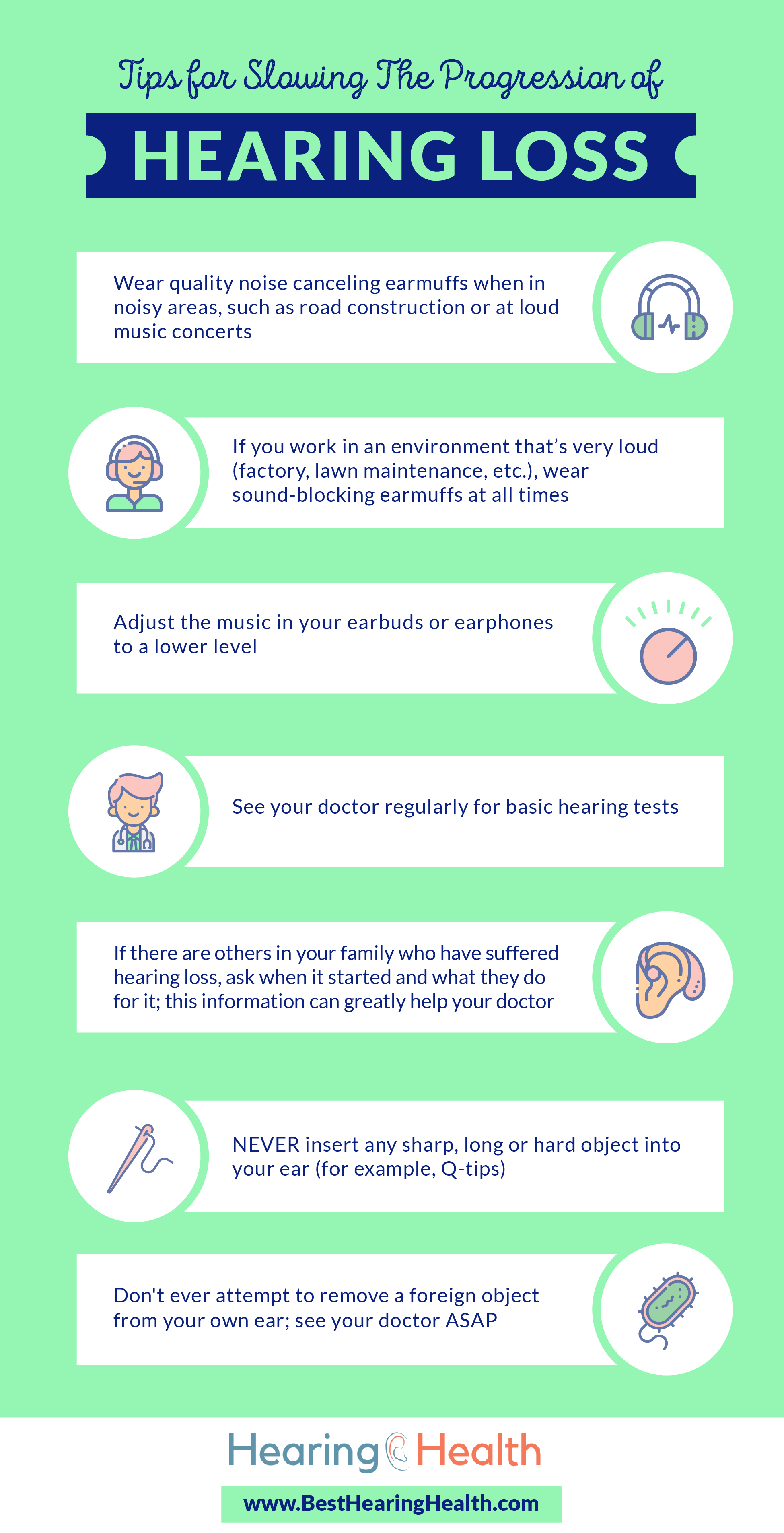How To Find Hearing Insurance
One reason that you may have not considering regular hearing exams is that your health insurance plan might not cover hearing. In fact, most insurance plans dont even cover the cost of hearing-loss related items like hearing aids. When my father needed hearing aids, it was a major expense for my parents. Their insurance did not cover the cost at all.
If hearing health is NOT a covered benefit for you, take a stand and request a change. EPIC Hearing Healthcare has created an advocacy flyer that anyone can just share to start a conversation with their HR professional. Download it at:
Ideally your hearing insurance should cover the following:
- Visits to an audiologist for a complete diagnostic evaluation at least every two years for adults and annually for children
- Coverage of hearing aid treatment
Hearing has too long been ignored until it causes problems. Its time to cover our ears like we cover the rest of our bodies with preventative healthcare and hearing insurance! Talk to your HR representative about adding hearing health to your healthcare plan.
How To Know If It’s Too Loud
Anything over 85 decibels can cause hearing loss. That’s roughly equivalent to standing in city traffic or pushing a lawnmower. If you’re out and about and have a smartphone, these apps can help you measure the sound around you. And the following guidelines are good to keep in mind:
If a situation feels too loud, it probably is. Beyond that, watch for these signs:
- You need to raise your voice to be heard
- You are unable to hear someone three feet away from you
- Speech around you sounds muffled or dull after leaving a noisy place
- You experience pain or ringing in your ears after being in a noisy place
Overview Of What Typically Causes Hearing Loss
There are a number of ways that your hearing can be adversely affected, and damage can occur which is sometimes irreversible. One of the most common causes of hearing loss is damage to the inner ear. There are tiny hairs and nerve cells situated in the inner ear which converts sound waves into signals to your brain. When anything happens to these hairs and nerve cells, such as some type of loud noise, or ordinary wear and tear like the effects of aging, the signals transmitted by those tiny hairs arent nearly as efficient.
When efficiency is degraded, hearing loss commences. At that time, its very possible that you may not be able to interpret higher-pitched tones, and some people also notice that its difficult to pick out specific words amid background noise. Another possible source of hearing loss comes from the simple buildup of earwax. When earwax locks the ear canal, it can impede or prevent sound wave conduction, and that will negatively impact your hearing.
Fortunately, the effects of earwax buildup can be recovered from by removing the earwax, assuming that you are aware of its presence and take steps to do so. Its possible for an ear infection to inhibit or prevent normal transmission of sound waves from your ear to the brain, and once the infection is cleared up, normal hearing is usually restored.
Also Check: Are You Hungry In Sign Language
How Fast Will My Hearing Loss Progress
The most common type of hearing loss is a gradual decrease in hearing sensitivity. This decrease typically starts in our 20âs but it does not impact our ability to communicate in most situations until our 50âs to 60âs.
The progression of loss typically stays the same after the loss has been identified, even with the use of hearing aids. There are other factors that can contribute to a faster decline in hearing loss, or acceleration of hearing loss such as:
- Smoking
- Idiopathic sudden hearing loss
How Can You Protect Your Hearing

Plan to use hearing protection like earmuffs and earplugs anytime you’ll be immersed in loud sounds. Not only do you reduce your risk of hearing loss, you may also stave off tinnitus, or ringing in the ears. If you work in a noisy placefor example, at a hair salon with blow dryers constantly in use and music blaring in the backgroundfind out if your employer offers noise protection, or bring your own. You’ll thank us later!
Also Check: Clearflex Hearing Aids
Be Aware Of Drugs That Cause Hearing Loss
Hundreds of over-the-counter and prescription drugs are linked to hearing loss. These ototoxic drugs range from ordinary, over-the-counter medications like aspirin to chemotherapy drugs and IV antibiotics. In some cases, you may be able to take an alternative drug to reduce your risk of drug-related hearing loss.
Causes Of Hearing Loss
Loud noise is one of the most common causes of hearing loss. Noise from lawn mowers, snow blowers, or loud music can damage the inner ear, resulting in permanent hearing loss. Loud noise also contributes to tinnitus. You can prevent most noise-related hearing loss. Protect yourself by turning down the sound on your stereo, television, or headphones moving away from loud noise or using earplugs or other ear protection.
Earwax or fluid buildup can block sounds that are carried from the eardrum to the inner ear. If wax blockage is a problem, talk with your doctor. He or she may suggest mild treatments to soften earwax.
A punctured ear drum can also cause hearing loss. The eardrum can be damaged by infection, pressure, or putting objects in the ear, including cotton-tipped swabs. See your doctor if you have pain or fluid draining from the ear.
Health conditions common in older people, such as diabetes or high blood pressure, can contribute to hearing loss. Viruses and bacteria , a heart condition, stroke, brain injury, or a tumor may also affect your hearing.
Hearing loss can also result from taking certain medications. Ototoxic medications damage the inner ear, sometimes permanently. Some ototoxic drugs include medicines used to treat serious infections, cancer, and heart disease. Some antibiotics are ototoxic. Even aspirin at some dosages can cause problems. Check with your doctor if you notice a problem while taking a medication.
Don’t Miss: What Is Sorry In Sign Language
How To Protect Your Hearing
Approximately 60 per cent of childhood hearing loss is preventable. While genetic factors contribute to hearing loss cannot be controlled, you can protect your hearing by a variety of other means.
These include wearing hearing protection and seeking advice from qualified audiologists if you have any concerns about your hearing. If you experience sudden hearing loss, its important that you seek medical help immediately.
The Three Types Of Hearing Loss
In general, there are three types of hearing loss:
Conductive hearing loss is less common and is the result of some kind of obstruction in the outer or middle ear. Common causes of conductive hearing loss include ear infections, perforated eardrums, benign tumors, impacted earwax, and genetic malformations of the ear.
However, sensorineural hearing loss is far more common.
Also Check: Which Composer Experienced Severe Hearing Loss During His Lifetime
How Is Hearing Loss Treated
In most people, hearing loss cannot be reversed, but there are treatments available that can help you improve your hearing, including:
- hearing aids
- cochlear implants and
- surgery
Technology, including some phone apps, can also help. You can find out more about technology for hearing loss at Hearing Australias website.
Find out more about hearing loss prevention and the Australian Governments hearing services program.
Four Tips To Prevent Hearing Loss In Your Child
- Set your TV or video game volume to the lowest volume but can still be heard clearly.
- Buy quiet toys or toys that have a volume control and set it to the lowest volume.
- If you live in a noisy location, keep windows and doors closed to minimize potentially harmful outside sounds.
- Use soft inside furnishings, more curtains, cushions and carpets that will absorb more sound.
- Encourage children to use earplugs or earmuffs if exposure to potentially harmful sounds is likely .
- When counseling my patients about volume and personal stereos I teach parents that if they can hear the music coming from their childs headphones they should encourage their child to turn the music down, shares Dr. Romero.
Recommended Reading: How To Pair Compilot With Hearing Aids
What Causes Hearing Impairment
The most common cause of conductive hearing loss in kids and teens is otitis media, which is the medical term for an ear infection that affects the middle ear. Ear infections cause a buildup of fluid or pus behind the eardrum, which can block the transmission of sound. Even after the infection gets better, fluid might stay in the middle ear for weeks or even months, causing difficulty hearing.
But this fluid is usually temporary, and whether it goes away on its own or with the help of medications, once it’s gone a person’s hearing typically returns to normal. Blockages in the ear, such as a foreign object, impacted earwax or dirt, or fluid due to colds and allergies, can also cause conductive hearing loss.
People also get conductive hearing loss when key parts of the ear the eardrum, ear canal, or ossicles are damaged. For example, a tear or hole in the eardrum can interfere with its ability to vibrate properly. Causes of this damage may include inserting an object such as a cotton swab too far into the ear, a sudden explosion or other loud noise, a sudden change in air pressure, a head injury, or repeated ear infections.
Sensorineural hearing impairment results from problems with or damage to the inner ear or the auditory nerve. Its causes include:
page 4
What Healthcare Providers Diagnose And Treat Hearing Loss

If you suspect hearing loss, you may see an:
- Audiologist: These specialists conduct hearing exams and hearing needs assessments to discuss your unique listening and communication needs. They help with determining the appropriate hearing devices, which often include hearing aids, in addition to other types of hearing device technology . Most audiologists have doctorates in audiology . Audiologists are not medical doctors.
- Hearing aid specialist: These specialists pass a state exam and receive state licenses to conduct hearing tests. They can fit you for hearing aids.
- Otolaryngologist: These medical doctors are also known as ear, nose and throat specialists. They prescribe medications and perform surgeries to treat ear problems and hearing loss.
Audiologists or hearing aid specialists often work with otolaryngologists. As a team, they can address all your hearing issues to help improve your hearing.
Recommended Reading: Ear Infection During Early Pregnancy
What Effect Does Hearing Aid Usage Have On Hearing Loss Progression
âSensory hearing loss that people may get as they age is a progressive condition,â Paul Kileny, AuD, director of the audiology program at the University of Michigan Medical School, tells WebMD Connect to Care. âIf you donât use a hearing aid consistently, your hearing loss could progress in the meantime, but it has nothing to do with your decision. Not using the hearing aid or any other kind of device will neither speed up nor improve oneâs hearing loss.â
Still, leaving your hearing aids in a drawer could hurt your communication abilities in other ways. Some studies indicate that not wearing hearing aids can reduce your language and speech comprehension over time, Holly Schissel, senior director of strategic insights at Starkey Hearing Technologies in Eden Prairie, Minn., tells WebMD Connect to Care.
Why? Itâs not that you are hurting your ear bones or nerves when you put your hearing aids aside. Rather, untreated hearing loss in addition to cognitive decline that naturally occurs with age can combine to negatively affect the parts of your brain that process sounds, Kileny says.
However, not wearing your hearing aids will not prevent you from being able to hear and process non-speech sounds, such as music or the sound of your dishwasher running, in the long-term Kileny and Schissel say.
âBut when those sounds are not being heard at the right level, they can be overlooked or missed,â Schissel says.
Musicians With Hearing Loss & Tinnitus
Musicians carry a high risk of hearing loss. The power of cranked up amps, overdrive pedals, pumping bass, and screaming fans all add up. Without it though, touring and making music would definitely be worse off. In fact, tinnitus and hearing loss affect musicians more than anyone else. And yet, these issues are often downplayed or hidden for fear that they will interfere with one’s career choice – but it doesn’t have to be this way. With the right resources available in your community you can get help.
Don’t Miss: How Did Beethoven’s Deafness Affect His Music
Tune In To Hearing Loss Prevention Tips For Your Child
Hearing plays an important role in communication, speech, language development and learning. Hearing loss is more common than you think. Earlier this year, ABC 7 did a story on ear buds and hearing loss, stating that one in five people in their twenties cannot hear the sound of a raindrop hitting the pavement due to the increased use of music ear buds. While not being able to hear a raindrop may not worry some, even a small amount of hearing loss can have negative effects on speech, language comprehension, communication, classroom learning and social development. To learn more, I partnered with Sandra Romero, Au.D, pediatric audiologist in the Division of Rehabilitative Medicine at Childrens Hospital Los Angeles.
You Will Be Benefited In The Future By Limiting Hearing Loss
While its true that hearing loss cant be cured, getting treatment for your hearing loss will help prevent additional damage. One of the primary ways to do that, in many instances, is hearing aids. The right treatment will help you preserve your current level of hearing and stop it from worsening.
Your giving yourself the best opportunity for healthy hearing into the future by using ear protection, getting the appropriate treatment, and exercising good hearing hygiene.
Don’t Miss: How To Say What Are You Doing In Sign Language
Control The Noise Around You
Over time, even everyday sounds can become a hearing hazard. The noise rating should be checked before you buy a new appliance. Try to use appliances that have a lower noise rating.
When you are out at a restaurant or party, dont be afraid to speak up if the noise gets too loud. A restaurant manager may be willing to turn down the background music for you or perhaps even move you to a different table away from loud speakers or clanging dishes.
Get Your Free Otofonix Hearing Test
Be sure to take advantage of our free online hearing test to help you determine whether you should be wearing a hearing aid. Once you have established your level of hearing loss, it will be easier to select which devices are most suitable for your needs.
Whats more, our hearing aids cost a fraction of what youd pay for prescription models. Here at Otofonix, we have helped countless people improve their hearing with our affordable hearing aids. If you are ready to improve your quality of life, we invite you to contact us so we can help you in your journey to better hearing.
You May Like: Phonak Tv Link Pairing
What Are The Types Of Hearing Loss
You can have hearing loss in one ear or both . The type depends on where damage occurs within the hearing system.
Types of hearing loss include:
- Conductive: Something blocks sound from passing through the outer ear or middle ear . The block may be an ear infection, earwax or fluid in the ear. Loud noises may sound muffled, and soft sounds can be hard to hear. Medicine or surgery often helps.
- Sensorineural: Hearing loss affects the inner ear or auditory nerve. Loud noises, diseases or the aging process often cause it. Children are prone to this type due to congenital conditions , trauma during childbirth, head injuries or infections. Sensorineural hearing loss is often permanent. Hearing aids and hearing assistive devices can help.
- Mixed: Some people have both conductive and sensorineural hearing loss. A head injury, infection or inherited condition can cause mixed hearing loss. You may need treatments for both types of hearing loss.
Vitamins Calorie Restriction And Loss Of Hearing

The researchers decided to focus their attention on calories in diets, and macronutrient and micronutrient food sources. They knew hearing aids could not make hearing worse, but could the right diet improve hearing, they wondered.
They knew that various experiments involving apes and small mammals had shown that caloric reductions reduced the occurrence of obesity, diabetes, and tumors in these creatures. There were also positive indications regarding neurodegenerative diseases.
Early studies had shown similar benefits for humans in terms of cholesterol levels, blood pressure, oxidative stress, inflammation, and insulin resistance.
However, they did not fully understand the mechanisms behind this. But they did discern the following:
1. Micronutrient vitamins have anti-oxidant properties that could help preserve hearing, and promote the proper functioning of the human ear
2. Diets rich in carbohydrates such as found in sugars and concentrated sweets may play a marginal role in hearing loss.
Read Also: Phonak Compilot Ii Pairing
Could We Prevent Or Slow Our Age
The U.S. National Institute on Deafness and Other Communication Disorders confirms hearing gradually deteriorates in most of us as we age. How often dont we say I wish I could improve my hearing naturally, or why wont people just speak clearly.
While behind the ear hearing aids cant make hearing worse when used properly, scientists dont have clear answers for preventing age-related hearing loss. They do, however recommend staying away from loud, potentially damaging sounds. If you must use a leaf blower, they say at least use ear muffs too.